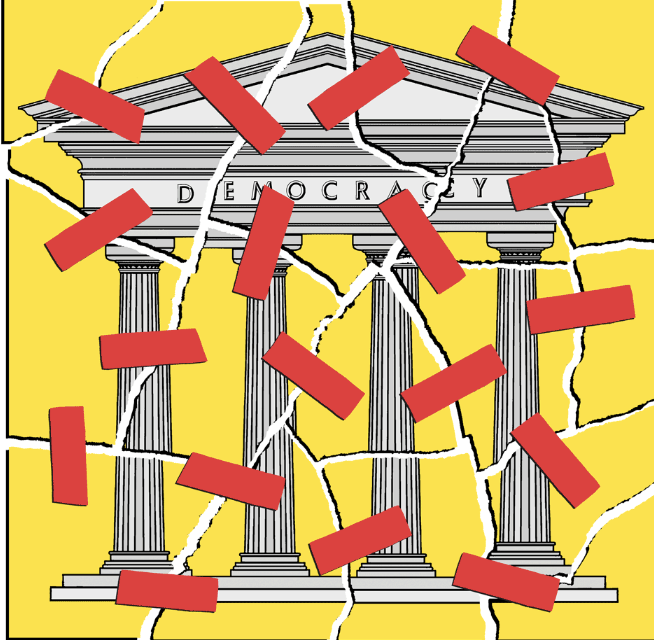. . .
Autocratic populists like Orban — leaders who win democratic elections and then undermine democratic institutions and norms without becoming outright dictators — have gained control of Brazil, the Philippines, Turkey, Hungary, Venezuela and Poland, among other nations, in recent years. While these leaders continually pit “the people” against supposedly corrupt elites, they often still hold free (if not always fair) elections. But in office, they act autocratically to unwind the conventions and institutions of democracy. This distinguishes them from populists (such as incoming Mexican president Andrés Manuel López Obrador, those who have recently run Greece and a host of other politicians in the West) who embrace populist economic messages and even the elite-popular divide but still mostly work within democratic constraints and rules.
Charismatic autocrats are making headway in other parts of Eastern Europe and Asia, too, and they have an analogue in President Trump. In the Philippines, President Rodrigo Duterte’s government has waged an extrajudicial drug war with thousands killed, filed criminal charges against a leading investigative journalist and overseen the jailing of prominent opponents, including two sitting senators. In Turkey, President Recep Tayyip Erdogan has put more journalists in prison than in any other nation, fired government workers he perceived as hostile, and locked up thousands of academics, political activists and other opponents. Brazil’s president-elect, former army officer and congressional backbencher Jair Bolsonaro, is another potential populist autocrat who pledges to ban opposition party members and imprison a rival candidate.




